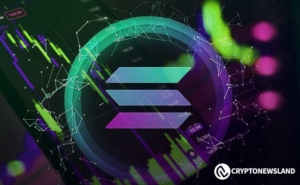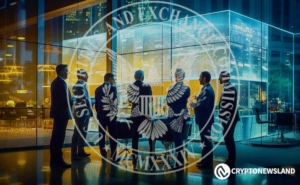Cardano’s Hoskinson Believes the Path for US’ Crypto Dominance Lies in Fostering Solid Regulation
In a wide-ranging interview with Shahaf Bar-Geffen, CEO and founder of blockchain payments platform COTI, Charles Hoskinson, the founder of Cardano, outlined his vision for the future of crypto regulation in the United States.
While the United States has remained largely stagnant in developing comprehensive legislative frameworks surrounding digital assets, other regions have made significant strides. For instance, Europe, Israel, the Middle East, and Japan have all established progressive ecosystems for blockchain technology and digital assets.
This regulatory paralysis has placed the U.S. at risk of falling behind in what Hoskinson predicts will become a “10-20 trillion dollar industry.” Infact, the impact of this uncertainty has been substantial, forcing many promising blockchain projects to exclude the U.S. market entirely.
Among these projects has been COTI, which despite its impressive $250 million valuation and innovative technology solutions, has been unable to serve the U.S. market. Most recently, the project stood out as the sole blockchain initiative to advance to the final stage of the Bank of Israel’s Digital Shekel Challenge.
This challenge, inspired by the BIS’s “Rosalind” initiative, invited participants from sectors such as fintech, banking, academia, and technology to create applications leveraging a digital shekel API layer.
Regulatory reforms are the need of the hour!
The anticipated changes in U.S. leadership have presented a unique opportunity for regulatory reform. For starters, the appointment of ex Paypal COO David Sacks as the nation’s “crypto czar,” along with pro-crypto leadership at key regulatory agencies like the SEC and CFTC, have been seen by many as the first step towards a more accommodating regulatory environment.
However,this transformation, in Hoskinson’s eyes, would involve a comprehensive review of the government’s existing frameworks and the development of new approaches to regulate emerging technologies like DeFi, DAOs, and smart contracts. He added:
“The industry has an obligation to use the next 6-9 months wisely, to have a discussion about what executive orders, administrative changes and law-making needs to be done to create a framework that’s workable for everybody.”
Building international bridges
As part of his interview with Bar-Geffen, Hoskinson — who is set to actively work with lawmakers in Washington DC following the regime change — positioned himself as a “connector in chief,” bridging the gap between U.S. policymakers and international crypto experts.
In his own words, his approach will synthesize surveys of U.S. crypto companies while facilitating dialogue between American lawmakers and international regulators who have already successfully navigated similar challenges, further noting:
“I’m going to bring people in from abroad, who would normally be excluded from the U.S. political process, to talk with U.S. lawmakers and to talk with the administration to share problems they already solved in many cases, like the ADGM in Abu Dhabi for example, or FINMA in Switzerland, or the Monetary Authority of Singapore.”
Further elaborating on the ongoing impact of the US’ lopsided approach to crypto oversight, Hoskinson highlighted the example of COTI, a project valued at a quarter of a billion dollars, stating that the ecosystem can’t touch base in the country because of its lack of foresight. “That’s one of thousands of stories, globally, and think of all the value that would bring to the U.S., and the value the U.S. can bring to these projects,” he added.
Looking ahead, Hoskinson’s sees the potential for the United States to become the best country in the world to establish and operate crypto businesses. However, this ambitious goal will require a fundamental shift in how the U.S. approaches financial innovation and international cooperation in the digital age.
Disclaimer: The content of this article solely reflects the author's opinion and does not represent the platform in any capacity. This article is not intended to serve as a reference for making investment decisions.
You may also like
US equities slide as trade war escalates, Powell signals no rate cut
Tariff and interest rate concerns overshadowed a positive March jobs report
Sei Investments increases 39% stake in MicroStrategy

Fidelity Spot Solana ETF Gains Traction As SEC Acknowledges Filing

Paul Atkins Moves Closer to SEC Chair Role After Senate Committee Approval

